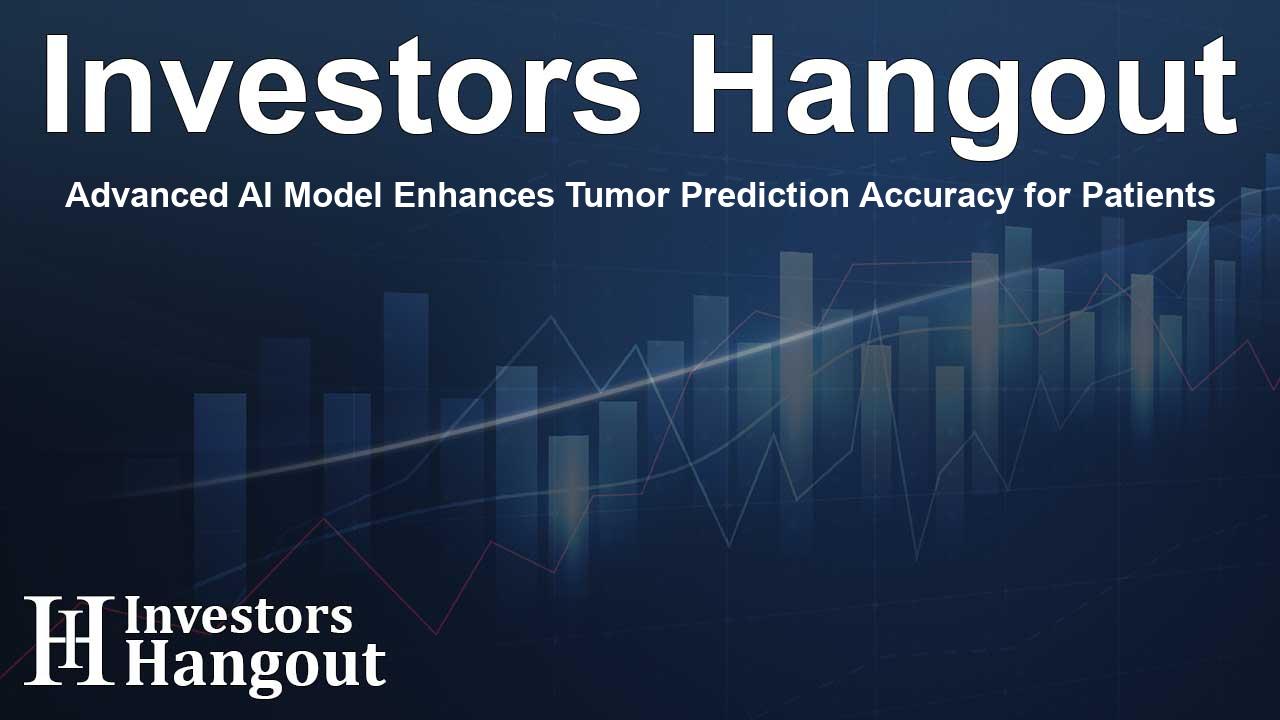Advanced AI Model Enhances Tumor Prediction Accuracy for Patients

Innovative AI Model Revolutionizes Cancer Treatment Predictions
Researchers at Yonsei University have introduced an AI model named MSI-SEER, aimed at enhancing the prediction of microsatellite instability (MSI) and the responsiveness of tumors to immune checkpoint inhibitors (ICIs). This groundbreaking technology has the potential to significantly elevate clinical outcomes for patients suffering from gastric and colorectal cancers, by aiding in the early identification and tailored treatment of these serious conditions.
Understanding Microsatellite Instability and Its Clinical Importance
Cancer remains one of the most pressing health challenges globally, with statistical projections suggesting that one in three individuals will face a cancer diagnosis in their lifetime. A critical indicator influencing the outcome of cancer treatment is the tumor's microsatellite status, which determines whether a tumor is microsatellite stable or unstable. This status reflects the stability of DNA concerning mutations within microsatellites, which play a vital role in cellular functions.
Patients diagnosed with microsatellite instability-high (MSI-H) cancers generally enjoy more favorable treatment outcomes compared to those with stable microsatellite tumors. Additionally, tumors that lack functioning mismatch repair proteins tend to respond more favorably to ICIs than conventional chemotherapeutic interventions, highlighting the necessity of effective MSI testing.
AI's Role in Enhancing MSI Testing
To improve diagnostic efficiency, health professionals recommend MSI testing for newly diagnosed gastric and colorectal cancer cases. The integration of artificial intelligence into this process is expected to deliver precise, cost-effective testing accessible to a broader patient population.
While previous studies have employed deep learning techniques, including convolutional neural networks, for MSI status prediction, these methods often fall short in capturing the inherent uncertainties of their predictions. Moreover, many lack the ability to offer insights into ICI responsiveness—an essential factor for clinical application.
Development of MSI-SEER and its Groundbreaking Findings
A multidisciplinary team from both Korea and the USA, including experts like Jae-Ho Cheong and Jeonghyun Kang, have formulated the MSI-SEER model. This innovative approach utilizes a deep Gaussian process-based Bayesian model that assesses hematoxylin and eosin-stained whole-slide images through weakly-supervised learning techniques, enabling accurate predictions of microsatellite status.
MSI-SEER's performance has undergone rigorous validation involving multiple large datasets composed of patients from diverse racial backgrounds. Prof. Cheong stated, "Our findings confirm that MSI-SEER achieves state-of-the-art performance, integrating uncertainty prediction for MSI outcomes." Furthermore, its capacity for ICI responsiveness prediction has been strengthened by correlating tumor MSI status with stroma-to-tumor ratios, elucidating the tumor microenvironment's spatial configuration.
Implications for Future Cancer Treatments
Prof. Cheong expresses his belief that the technology bears significant potential for real-world applications, suggesting its use as a prospective cohort surveillance tool or in Phase IV clinical trials. He further elaborates on how the AI algorithm may evaluate clinical multimodal data to form actionable models for precision medicine, addressing the growing necessity for personalized cancer therapies.
About Yonsei University
Located in Seoul, Yonsei University stands as one of South Korea's most esteemed research institutions, dedicated to academic excellence and fostering global innovation in various fields, including the medical sciences.
Contact Information
For further inquiries, please reach out to Jin Young Choi at 82-2-2123-2079. Alternatively, additional details about Yonsei University can be explored on their official website.
Frequently Asked Questions
What is the MSI-SEER model?
The MSI-SEER model is an AI-driven tool developed to predict microsatellite instability and assess tumor responsiveness to immune checkpoint inhibitors.
Why is microsatellite instability important in cancer?
Microsatellite instability is an essential indicator of cancer treatment outcomes, influencing patients' responses to therapies, especially immune checkpoint inhibitors.
What advantages does AI bring to MSI testing?
AI enhances MSI testing efficiency, accuracy, and accessibility, allowing for better patient outcomes through tailored treatments.
Who are the key researchers involved in developing MSI-SEER?
The team includes Jae-Ho Cheong and Jeonghyun Kang, prominent figures in the medical research community, collaborating on this groundbreaking project.
How can the MSI-SEER model impact clinical practice?
By integrating uncertainty predictions and providing insights into tumor microenvironments, it may lead to more informed treatment decisions and improved patient management in oncology.
About The Author
Contact Olivia Taylor privately here. Or send an email with ATTN: Olivia Taylor as the subject to contact@investorshangout.com.
About Investors Hangout
Investors Hangout is a leading online stock forum for financial discussion and learning, offering a wide range of free tools and resources. It draws in traders of all levels, who exchange market knowledge, investigate trading tactics, and keep an eye on industry developments in real time. Featuring financial articles, stock message boards, quotes, charts, company profiles, and live news updates. Through cooperative learning and a wealth of informational resources, it helps users from novices creating their first portfolios to experts honing their techniques. Join Investors Hangout today: https://investorshangout.com/
The content of this article is based on factual, publicly available information and does not represent legal, financial, or investment advice. Investors Hangout does not offer financial advice, and the author is not a licensed financial advisor. Consult a qualified advisor before making any financial or investment decisions based on this article. This article should not be considered advice to purchase, sell, or hold any securities or other investments. If any of the material provided here is inaccurate, please contact us for corrections.
